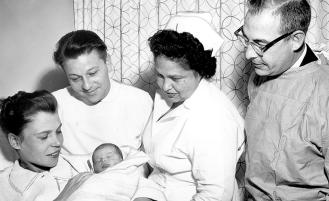12 Expert Tips for a Restful Night's Sleep
It’s hard to have a productive day after a bad night’s sleep. Yet it’s estimated that 50 to 70 million Americans have chronic sleep problems. And one in three Americans don’t get enough sleep on a regular basis. To help you improve your sleep, Nicole O'Malley, MD, MS, with Overlake Clinics Sleep Medicine, shares 12 expert tips for a more restful night.
Improve Your Sleep with These Helpful Tips
The following techniques can help you fall and stay asleep more easily. Talk with your healthcare provider if the quality of your sleep doesn’t improve despite your efforts.

- Try to go to bed at the same time each night and wake up at the same time each morning, regardless of how much sleep you’ve had. Sticking to a schedule helps set your biological clock.
- Avoid caffeine in the late afternoon and evening. Caffeine in coffee, cola, tea, and chocolate can hinder sleep.
- Drink alcoholic beverages in moderation, if at all. Consuming alcohol before going to bed can interrupt deep sleep.
- Don’t smoke. Nicotine is a powerful stimulant.
- Ask your provider or pharmacist if any of your medications could be disrupting your sleep. Some over-the-counter pain relievers contain more caffeine than a cup of coffee.
- Exercise regularly. Moderate-intensity exercise can help you fall asleep faster and wake less often during the night. When possible, schedule your workouts for earlier in the day and avoid strenuous activity within three hours of bedtime.
- Don’t overeat or undereat in the evening. A light snack is fine, but avoid eating a large or heavy meal within a few hours of bedtime.
- Find ways to manage your stress. Try activities that use breathing exercises or mindfulness, like yoga or meditation.
- If you often lie in bed thinking of what you should have done during the day and what you have to do tomorrow, make a plan for dealing with those distractions. Try making a to-do list so you don’t stay awake fearful you’ll forget to do something important.
- Limit naps. A short, 20-minute nap may help you feel more alert. But if you have trouble sleeping, consider skipping naps or limiting them to the early afternoon.
- Create a good sleep environment. Keep the temperature in your bedroom cool at night; the ideal temperature is in the mid-60s. Keep the room dark by installing heavy draperies or a light-blocking shade.
- Check your bed. Trying to sleep on a bed that’s too hard or too soft is difficult. A bed that does not provide adequate comfort and support can contribute to or cause a sleep problem.
If poor sleep is a recurring issue for you, or you are concerned about breathing or movement conditions affecting your sleep, don’t hesitate to schedule an appointment with your healthcare provider to assess whether a sleep study is right for you.









